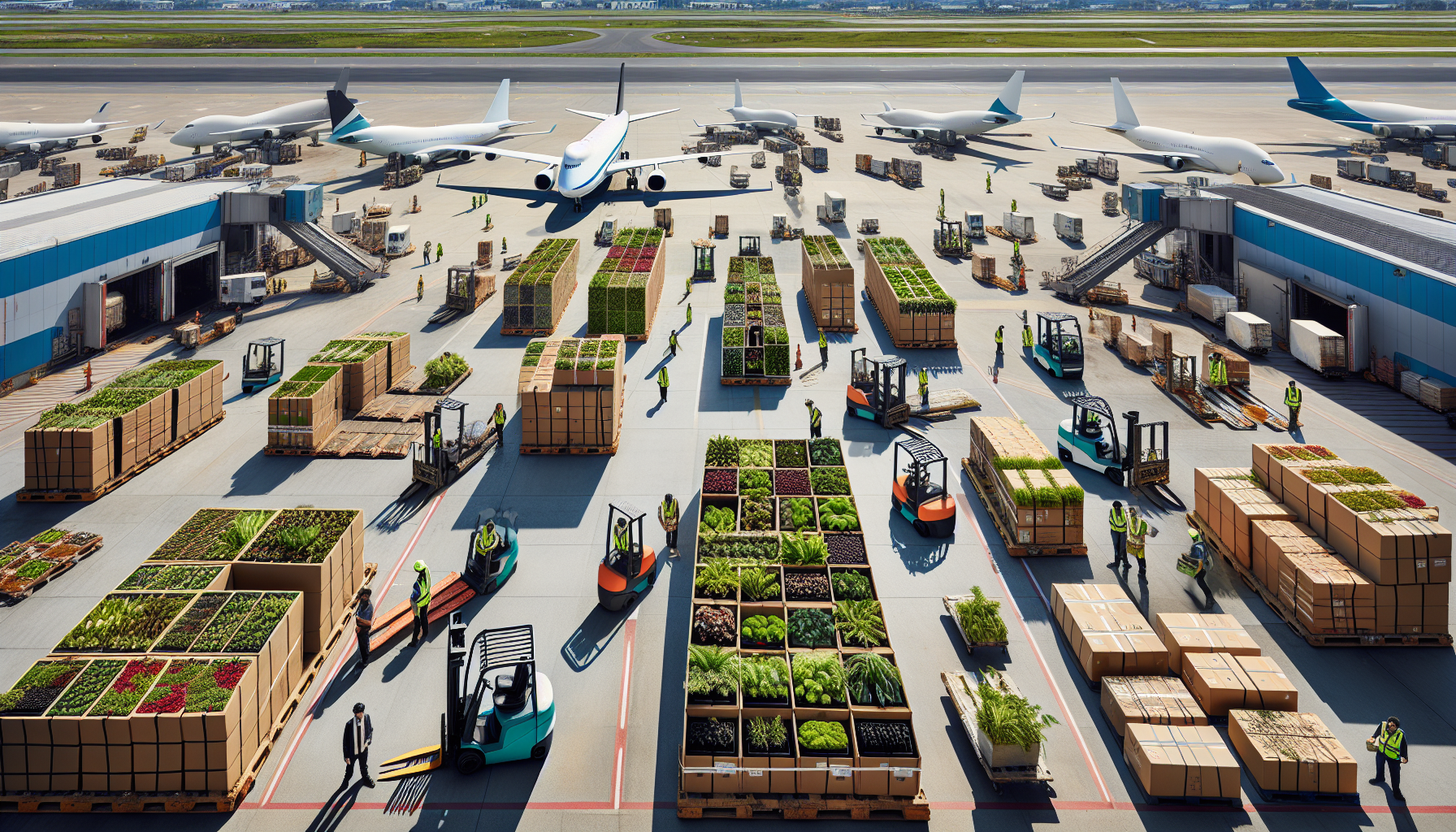Can ISF Filings Be Submitted For Goods That Are Transported Via International Air Cargo Consolidators With Live Plants?
Have you ever wondered if you can submit ISF filings for goods that are transported via international air cargo consolidators with live plants? It’s a question that many importers and exporters have, and it’s an important one to consider when dealing with international trade regulations. In this article, we’ll explore the rules and requirements surrounding ISF filings for shipments involving live plants and air cargo consolidators. Stay tuned to find out what you need to know to ensure compliance and smooth transportation of your live plant shipments.
Can ISF Filings Be Submitted For Goods That Are Transported Via International Air Cargo Consolidators With Live Plants?

Overview of ISF Filings
Import Security Filing (ISF) is a requirement by the United States Customs and Border Protection (CBP) for importers to provide information about their goods before they are transported into the United States. This filing helps CBP assess the security risk of incoming shipments, and it is crucial for ensuring the safety and smooth flow of goods across borders.
Requirements for ISF Filings
To comply with ISF requirements, importers are responsible for submitting essential information about the imported goods, including but not limited to the shipper’s name and address, consignee’s name and address, and a detailed description of the goods. This filing must be completed at least 24 hours before the goods are loaded onto a vessel bound for the United States.
Considerations for Live Plants
When it comes to live plants, there are additional considerations for ISF filings. Live plants fall under the category of agricultural products and are subject to regulations enforced by the United States Department of Agriculture (USDA). As a result, importers must adhere to both CBP’s requirements for ISF filings and USDA’s regulations for live plant imports.

ISF Filings for Goods Transported via International Air Cargo Consolidators
Transporting goods via international air cargo consolidators offers a more convenient and efficient means of shipment. However, it raises questions about whether ISF filings can be submitted in such cases. The answer is, yes, ISF filings can be submitted for goods transported via international air cargo consolidators, including those with live plants. Although ISF filings were initially designed for ocean shipments, they have been expanded to cover various modes of transportation, including air freight.
Submitting ISF Filings for Live Plants
When submitting ISF filings for goods transported with live plants through international air cargo consolidators, importers need to ensure they have accurate and complete information regarding the shipment. This includes details such as the botanical name of the plants, their country of origin, and the intended use or destination in the United States. Providing this information helps CBP and USDA evaluate the potential risks associated with importing live plants.
Documentation Needed for ISF Filings with Live Plants
Importers are required to provide specific documentation as part of their ISF filings with live plants. This typically includes a phytosanitary certificate issued by the exporting country’s plant protection agency, which verifies that the plants meet the necessary health and safety standards. Additionally, importers may need to provide invoices, packing lists, and any other supporting documents that provide a comprehensive understanding of the import shipment.
ISF Cargo for more Information
Timelines and Deadlines for ISF Filings
Given the importance of timely information for security purposes, it is crucial for importers to adhere to the timelines and deadlines set for ISF filings. For goods transported via international air cargo consolidators, ISF filings must be submitted at least 2 hours before the aircraft’s departure from the last foreign port. Failure to meet these deadlines can result in penalties and delays in the clearance process.
Penalties for Non-Compliance
Non-compliance with ISF filing requirements can lead to various penalties imposed by CBP. Importers may face monetary penalties, shipment holds, or even denial of entry for their goods. It is essential to understand the consequences of non-compliance and ensure that all ISF filings, including those for live plant shipments, are accurately and timely submitted.
Other Considerations for ISF Filings with Live Plants
In addition to meeting the requirements specific to live plant imports, importers need to keep in mind other considerations for ISF filings. This includes ensuring that all the information provided in the filing is accurate, complete, and consistent with other accompanying documents. It is also crucial to keep track of any changes or updates to the shipment details and promptly notify both CBP and USDA.
Conclusion
In conclusion, ISF filings can indeed be submitted for goods that are transported via international air cargo consolidators with live plants. Importers must comply with both CBP’s requirements for ISF filings and USDA’s regulations for live plant imports. By providing accurate information and necessary documentation, importers can ensure a smooth and secure process of importing live plants while meeting all legal obligations.
Learn more about ISF and Entry Filing. Know more for Secure bond application for importers. Feel free to ISF help desk. Return to Customs Filing dashboard for importers.
